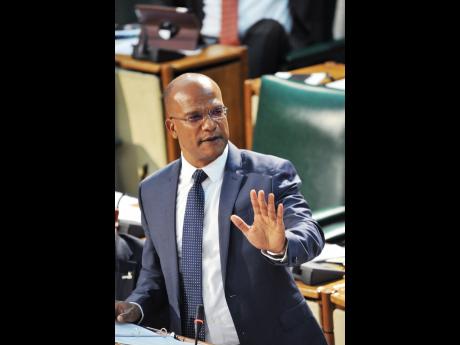Jamaica Constabulary Force to get body cams by year end
By the end of the year, members of the Jamaica Constabulary Force (JCF) could start wearing body cameras when they are deployed to front-line duties.
That's according to National Security Minister Peter Bunting, who revealed yesterday that the United States has acquired nearly 400 body cameras that will be turned over to the Jamaican Government later this year.
"They have gone through their procurement process, and the order has been placed, so it's just a matter of delivery, training, and putting the infrastructure in place," Bunting said.
"My last discussion with them [US authorities] was that we would get those cameras this year," he added.
Bunting's latest disclosure comes more than 18 months after he first announced plans to have some members of the JCF fitted with body cameras.
The announcement was made while Bunting visited the Orange Villa community in downtown Kingston hours after popular cook shop operator Nakia Jackson was shot and killed by the police under controversial circumstances.
a win-win situation
With the historic introduction of body cameras closer to reality, Public Defender Arlene Harrison Henry viewed it as a "win-win situation" for the police and citizens.
She said the cameras have the potential to not only preserve facts that may become important in helping understand how an incident took place, but would also force the police to operate more carefully.
"It increases transparency and accountability. People cannot act with impunity," Harrison Henry told The Gleaner yesterday.
"It is a means that would make police officers be more on their Ps and Qs. It is a mechanism that will assist them [those not doing so] to operate within the rules of engagement," she underscored.
Bunting indicated that based on discussions with the leadership of the JCF, the cameras would be worn by those police personnel who are likely to confront criminals.
"The people who would typically carry out raids like the Ops [operations] teams, Mobile Reserve, the operations support teams in the respective divisions, those would be the ones that would be targeted," the security minister said.
Last December, Bunting told The Gleaner that the US government was purchasing the cameras for US$400,000, or approximately J$45 million. He also said then that both countries had agreed on the specifications after a pilot project.
Addressing a post-Cabinet press conference in January last year, the national security minister said the introduction of body cameras was being done to encourage police personnel to act in accordance with the JCF's professional standards, including guidelines governing the use of deadly force.
He said it would also protect the police from unfair allegations.

